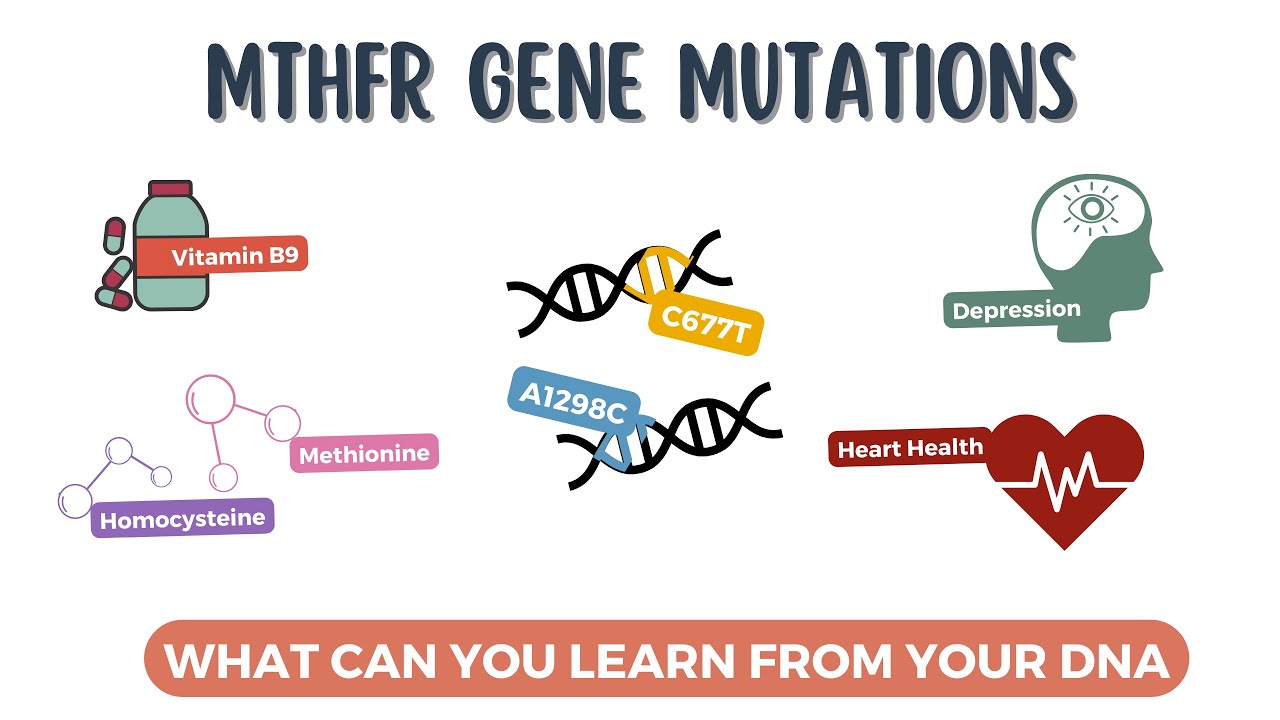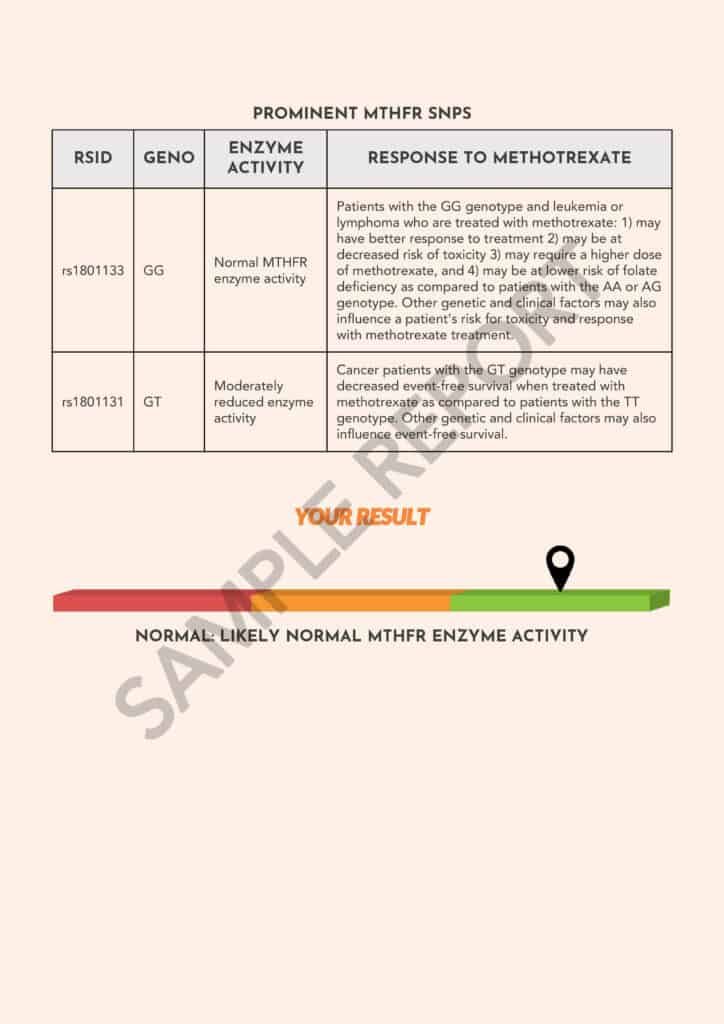The MTHFR and methylation report provides information about the common polymorphisms in the MTHFR gene associated with increased levels of homocysteine, a harmful substance, in the blood.
What does MTHFR stand for?
MTHFR stands for methylenetetrahydrofolate reductase.
What is MTHFR?
MTHFR is a gene that produces the enzyme methylenetetrahydrofolate reductase (MTHFR). This enzyme is responsible for the conversion of inactive folate to active folate. A change in this gene in some people can disrupt this conversion and lead to various health problems. Some signs of MTHFR polymorphisms are cardiovascular and thromboembolic diseases, anxiety, bipolar disorder, colon cancer, and chronic pain.
Video: MTHFR Sample Report Walkthrough
MTHFR and Methylation Report
There are two important MTHFR single nucleotide polymorphisms or SNPs, rs1801133, and rs1801131, associated with the MTHFR enzyme activity.
Depending on the genotype of these SNPs, your final result is displayed as a bar diagram.
The next section of the report titled “Other MTHFR SNPs” profiles your genotypes for other variations in the MTHFR gene, which are associated, in varying degrees, with MTHFR enzyme activity.
The ‘normal’ column denotes the variant associated with normal enzyme activity, and the ‘risk’ column displays the variant associated with reduced enzyme activity. ‘Geno’ refers to your genotype.
If you carry two risk variants for the SNP, then it is marked in red. If you carry one risk variant, it is marked in yellow, and if you carry two normal variants, it is marked in white.
The ‘Rank’ describes the impact of the SNPs on health. ‘High’ denotes high-impact SNPs with a greater impact on health. Medium and low indicate moderate and lower impacts, respectively. Please bear in mind that the Rank is a theoretical value and not experimentally verified.
One common effect of the mutation is elevated homocysteine levels, which have been linked with conditions such as birth defects, heart diseases, Alzheimer’s, and depression. The final section of the report comes with recommendations targeted at decreasing homocysteine levels. They are to be followed only after consulting with a qualified medical practitioner.
Please bear in mind that human traits are a result of complex interactions between multiple genes and environmental factors. The findings presented in this report are of a preliminary nature and are not meant for diagnostic purposes.
What are the traits covered in this report?
The report analyzes over 15 genes that play a role in methylation, including MTHFR, MTR, MTRR, and NOX4.
For a sample MTHFR report/ preview of the report, click here.








